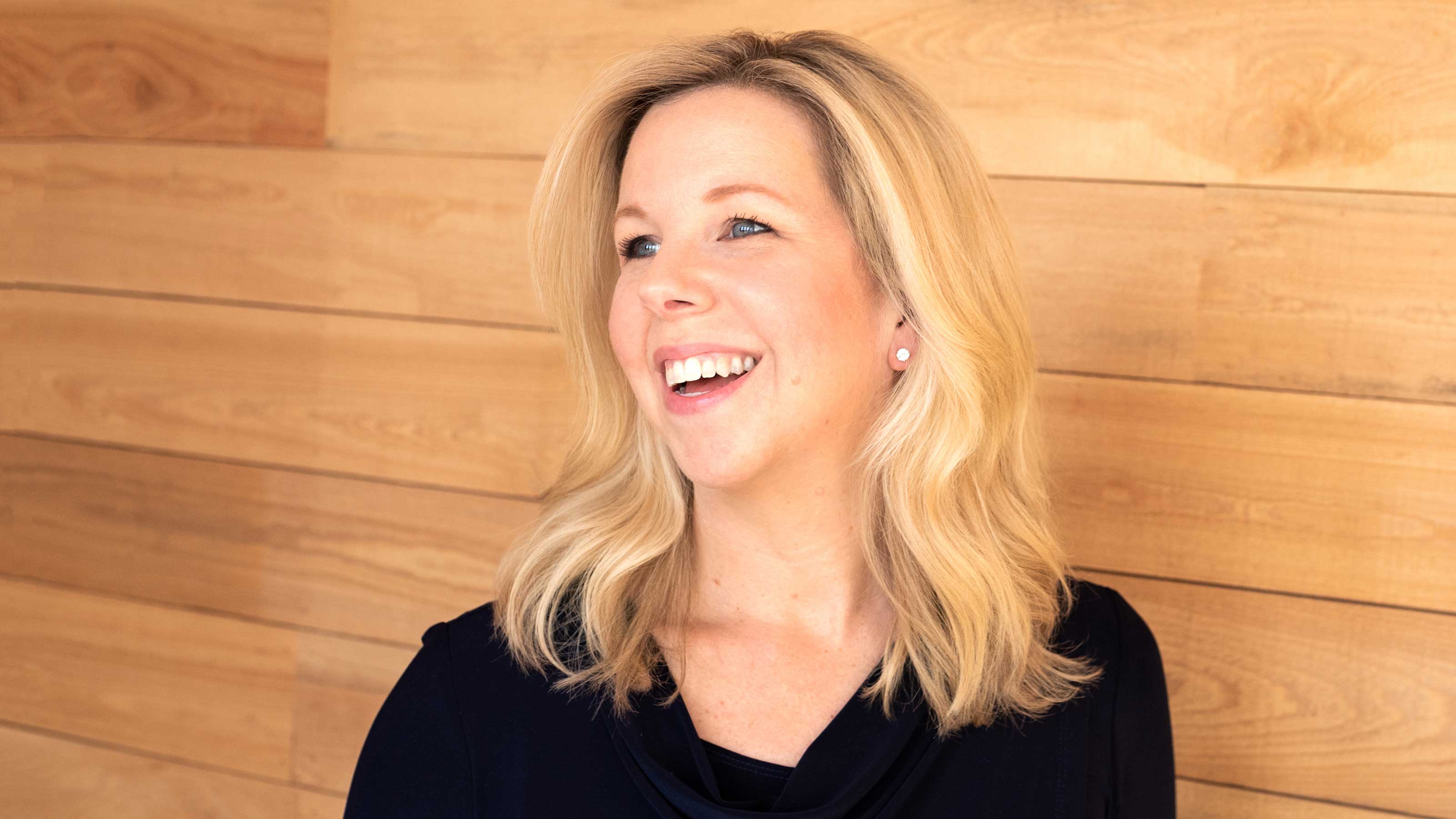Retiring With Your Spouse
Kiplinger's retirement columnist and editor-at-large Janet Bodnar joins hosts Sandy Block and Ryan Ermey to offer tips on how to retire as a couple. Also, the pair talks tax breaks and perks for members of the military on Veterans Day.

Profit and prosper with the best of Kiplinger's advice on investing, taxes, retirement, personal finance and much more. Delivered daily. Enter your email in the box and click Sign Me Up.
You are now subscribed
Your newsletter sign-up was successful
Want to add more newsletters?

Delivered daily
Kiplinger Today
Profit and prosper with the best of Kiplinger's advice on investing, taxes, retirement, personal finance and much more delivered daily. Smart money moves start here.

Sent five days a week
Kiplinger A Step Ahead
Get practical help to make better financial decisions in your everyday life, from spending to savings on top deals.

Delivered daily
Kiplinger Closing Bell
Get today's biggest financial and investing headlines delivered to your inbox every day the U.S. stock market is open.

Sent twice a week
Kiplinger Adviser Intel
Financial pros across the country share best practices and fresh tactics to preserve and grow your wealth.

Delivered weekly
Kiplinger Tax Tips
Trim your federal and state tax bills with practical tax-planning and tax-cutting strategies.

Sent twice a week
Kiplinger Retirement Tips
Your twice-a-week guide to planning and enjoying a financially secure and richly rewarding retirement

Sent bimonthly.
Kiplinger Adviser Angle
Insights for advisers, wealth managers and other financial professionals.

Sent twice a week
Kiplinger Investing Weekly
Your twice-a-week roundup of promising stocks, funds, companies and industries you should consider, ones you should avoid, and why.

Sent weekly for six weeks
Kiplinger Invest for Retirement
Your step-by-step six-part series on how to invest for retirement, from devising a successful strategy to exactly which investments to choose.
Ryan Ermey: You may have invested and save diligently toward retirement, but have you thought about the mechanics of retiring as a couple? Kiplinger editor at-large and Living in Retirement columnist Janet Bodnar, joins the show to tell married folks what they should be planning for in our main segment. On today's show, we break down tax breaks and perks for members of the military and talk medical spending accounts and value investing in the new edition of financial fact or fiction. That's all ahead on this episode of Your Money's Worth. Stick around.
- Episode Length: 00:31:38
- Links and resources mentioned in this episode
- SUBSCRIBE: Apple Google Play Spotify Overcast RSS
Ryan Ermey: Welcome to Your Money's Worth. I am Kiplinger's associate editor Ryan Ermey, joined as always by senior editor Sandy Block. Sandy, how are you?
Sandy Block: I am great, Ryan.
From just $107.88 $24.99 for Kiplinger Personal Finance
Become a smarter, better informed investor. Subscribe from just $107.88 $24.99, plus get up to 4 Special Issues

Sign up for Kiplinger’s Free Newsletters
Profit and prosper with the best of expert advice on investing, taxes, retirement, personal finance and more - straight to your e-mail.
Profit and prosper with the best of expert advice - straight to your e-mail.
Ryan Ermey: I am so glad to hear it. We are coming at you today on Veterans Day. So we thought it apropos to talk about something that we've covered over the years here at Kiplinger's, which are tax breaks and perks for veterans. Now we recognize that not everyone listening to this show is a veteran or a member of our military, but just about everyone I think has someone in their family or someone in their orbits. So if you want them to live a more financially secure life, then point them in our direction here.
Sandy Block: That is right. I go to a lot of world series champions Nationals' games and we always do a hats off to the vets and a lot of times they get good seats, which is great. It's nice to have a good seat at a baseball game, but it's better to take advantage of some of these perks that we offer people who are giving us their service. And we will put the slide show in the show notes, but there's a few you may not have heard of. And as Ryan pointed out, even if you are not in the military, there's a good chance... I count at least three members of my family who are either serving or have served. So shout out to them. But one that came up that I really didn't know about was that the military has a savings deposit program.
Sandy Block: If you are deployed, you can invest up to $10,000 in the program each time you are deployed and you receive annual interest of 10% compounded quarterly. Where else are you going to get 10% on your savings?
Ryan Ermey: Just about nowhere.
Sandy Block: Nowhere. That is right. Another one that I think this is really valuable and in smart people, this is often times why they go into the military in the first place, the Post-9/11 GI bill covers the full cost of in state tuition and fees at public colleges for up to 36 months or up to about 24,000 per year for private colleges and foreign schools. And key to this is long time service members can transfer these benefits to a spouse or children. So this is huge. I mean we know how expensive college is. So many people graduate with student loans. It's very important to take advantage of this benefit. If you leave the service you can get, you are already very employable by the fact that you've done your service and now you could get become even more employable by getting a degree.
Ryan Ermey: Now we've talked about Roth IRAs on this show. We believe in them and for most people, contributions to a Roth are after taxes. So essentially you can contribute to a Roth with money that you've already paid taxes on and withdraw it tax-free in retirement. But for service members, the perk is different.
Sandy Block: Yeah. If you are receiving tax-free combat zone pay, you can put that money into the Roth tax-free and your contributions as well as earnings will come out tax-free. So, that is a double benefit that is hard to beat and it's just a way to compound the fact that when you are in the combat zone, your pay is not taxed. So you can make that no tax money go even farther by putting it in a Roth. Another one I am wanting to mention, there's some real nice benefits for members of the military who want to buy a home. They have access to veteran's administration loans which lets you get a house with no money down and no private mortgage insurance. There are several state, if you are a retired military. We will put all these in the show notes. There are quite a few States that do not tax military pensions, so that is something you want to pay attention to.
Sandy Block: And I think the last thing I want to mention is a new... relatively new retirement plan for members of the military that combines the thrift savings plan, which is like a 401(k) for the federal government and the pension. And basically what this program does is help members of the military who do shorter terms. In the old days, unless you served at least 20 years, you didn't get much of anything. This allows you to contribute through savings plan. So you are saving for retirement and getting some benefits, even if you serve... maybe just do one term or something like that.
Ryan Ermey: Right. And the thrift savings plan applies to not just military people but various people who work in the government. My buddy who was secret service was a thrift savings plan guy. So there is this new blended system is for anyone who will, in this case, who joined the military in 2018 or later... is going to apply to you.
Ryan Ermey: So like I said, or like Sandy said... Sandy's been the real... the font of knowledge on this particular subject. We will have the full slide show in the show notes for this episode. So, if you are in the military, if you are a veteran or if you just know somebody who... for whom these things could apply, spread the word and for everyone else, have an excellent Veterans' Day.
Ryan Ermey: We are back and we are here with Janet Bodnar, Kiplinger's magazine editor-at-large, and the columnist for the Living In Retirement column. Our topic today is couples and retirement. So Janet, thank you so much for coming on.
Janet Bodnar: Oh my pleasure.
Ryan Ermey: So maybe a good place to start is how, as a couple, should people go about deciding when each part... each person in the couple wants to retire and what if you want to retire at different times?
Janet Bodnar: Well, that is a huge question right there, Ryan. But here's the thing with retirement. Obviously, finances are a critical factor and you have to be able to afford to retire so that is number one. But, beyond that, there are so many different factors and frankly a lot of couples don't consider the decision as a couple or as two separate persons. Or they assume that their spouse is on the same page they are and wants and wants to retire at the same time they do and wants to do the same things that they want to do so that you are going to be doing it together. Never assume that your spouse going to be on the same page as you are. So, it's really important to start the conversation before you retire. And some people say if you are really good at it, maybe you are going to start five years or so before the decision.
Janet Bodnar: But, realistically maybe a year or so. It's going to take you a year or so just to get through all the paperwork and do all the things that you need to do. So at least a year in advance, start talking about this. And one piece of advice that a financial advisor gave me once is that you should each think about what you are going to be doing in retirement and kind of use the who, what, where, when, why questions. Where are going to be? What are you going to be doing? Who are you going to be doing it with? And then each of you should compare notes as to what you are saying because you may very well not be on the same page and you may be thinking, Oh, I want to spend more time with the grandkids and your spouse is thinking, heck no, I want to travel the world and people don't think about these things. So it's really critical that they start talking about it as soon as possible.
Sandy Block: Janet, I saw a great headline the other day and then this would apply to couples that do retire at the same time. It said, I married you for life, but not for lunch. And I think it has to do with the fact that a lot of... most couples, if they've been working, aren't used to being around each other all day long. And I wonder if that is something that you also need to discuss, maybe not necessarily a financial thing, but it's a big life change when you are both home all day.
Janet Bodnar: Somebody said to me that retirement is really just is a big life change. And this was a financial advisor who told me this and he said this is a big life change and people come to me just for permission to do it, from the financial end. And so even though the finances are so critical, you are absolutely right there, it is a life change and it's especially a life change if one party has been staying at home. I mean nowadays it's still frequently a wife who has been home for a long time and possibly as a stay-at-home spouse so obviously that is changing. But nevertheless, there may be someone who already has, or one of the spouses already has, an at home life and suddenly this other spouse is plunked down in the middle of this. And maybe that other spouse, as a referral to our first question, does not really know what he or she wants to do with himself when he retires.
Janet Bodnar: And so suddenly there you are staring at each other over the breakfast table thinking, oh my gosh, what next? And I get a lot of reader response to my Living in Retirement column and people have come up with some very interesting solutions to this problem. One gentleman said, this is what he does. He starts... he's an early riser and always has been. So he gets up early. This is after he retired. He gets up early, he goes out, he does his morning things: he does his chores, he does his exercise regime. He does any projects that he has. And then kind of when he finishes his day, that is when he comes home and gives his wife a kiss just like he did when he was walking home. It's... I know! Exactly. And obviously not everyone is going to do that, but you got to figure out what you are going to do. What are you going to do together?
Janet Bodnar: I saw an interesting statistic from one of the studies that I have seen and that is that spouses do not usually talk about... two thirds of spouses said that they did not really talk about what they were going to do in their leisure time in retirement. They had not really discussed that, nor had they made any budget for travel. So a lot of people who retire say they want to travel. Well, what is your budget for retire for travel and when are you going to do it in, are you going to do it together? And maybe you want to do it separately and take separate vacations because one of you wants to take a motorcycle trip cross country and the other one wants to take a river cruise.
Janet Bodnar: So you have to know these things and you have to budget for them. But just the very fact that you are around each other all the time is a, is a huge adjustment. And even if you were both working and there wasn't a spouse who was in the house, you still have had your own schedules. You left each other in the morning and you saw each other at six o'clock at night when you got home again and now suddenly you are there all day. So, you are going to have your own interests. Some things you'll do together, that is what I found in my own retirement. Something she will do together with your spouse and other things you will do separately. And you will say, Hey, I am going to go out and run errands for a few hours. I will be back later. Or, oh, I am going to have lunch with a friend and I will see you soon. Or maybe some days you will have lunch together with your spouse. So anyway, you need to anticipate that this is going to happen because it is going to happen.
Ryan Ermey: We talk about it as a big life change, but on a practical level, the way that you are getting income into your household is changing. Should couples nearing retirement consider combining their finances such as savings or investments in a more serious way than when they were both working?
Janet Bodnar: That is a real interesting question, Ryan. And I thought about that. I don't think they necessarily have to combine their income or their resources by putting them all in the same account, but they are going to begin this together. And so they really have to plan as a couple and that means looking at their entire pot of money wherever it happens to be, what are their sources of income, where do they have their 401(k) or similar retirement or a workplace retirement plan. Do they want to roll that into an IRA? Where do they want to put that money? And to sort of look at the whole pot of money, you may each have had your own investment strategy as you were working, but now you've got to make that money last for the next, possibly, 25 to 30 years depending on when you retire.
Janet Bodnar: So you kind of have to have an overall strategy, although you can still manage your own money if you wish to or your own investments. Or if you have had separate checking accounts, you can still do that I think. But you really do have to confer as to what your expenses are, number one, cause that is just critical in retirement. you are probably going to have a fixed income to a degree. Obviously your investments will be variable, but you really have to have a handle on what your expenses are and whether you are going to have enough income to cover those expenses. So, you have to call upon all your resources. And even if each of you is continuing to manage his or her own resources, you have got to know where the big pot is.
Sandy Block: Right, Janet. And that is interesting cause we are working on a story now about, you can't really come up with how much you need to retire until you know how much you are going to spend in retirement. And I think a lot of people don't do a very good job of that. I am just curious, when you were planning and you and your husband were planning your retirement, how granular did you get in terms of spending and have you been surprised in any way at what you are spending has actually been?
Janet Bodnar: Well, one thing that was interesting was that my husband is the... he's the one who's the keeper of the books in our household, which is a little bit different in itself cause frequently it's the woman who does the household books and the man who does the investing. That is very sexist thing to say. But unfortunately, it happens all the time.
Janet Bodnar: Well, but my point is because I have been with Kiplinger for so long, I was doing my own investments and I did my own 401(k) plan and that sort of thing. But my husband is an accountant at heart. In fact, his degree is in accounting and so he likes to keep the books. So he really did a very thorough... Just looking at where our expenses had gone in the year or so before we retired.
Janet Bodnar: He took a look at it, so he knew how much we were spending on various things. At least in general. I don't think he took a granular look at how much I was spending on clothes or anything like that. And I also had an overview. He always shared, he would do a spreadsheet and then I would see the spreadsheet. So I would know where everything was going and we could probably pinpoint in general, how much did we spend on meals out? How much did we spend on travel? How much did we spend at a department stores, just on this stuff that you would buy at a store. So we had a pretty good handle on how much money we would need to cover the expenses that we had in retirement. And I thank him from the bottom of my heart for doing that.
Janet Bodnar: Seriously. That was just... We couldn't have done it without knowing that. And then we just took a look at what our... and what we made a few decisions based on that. We decide that we really wanted to maximize our regular stream of income. So one of the reasons, one of the things we decided to do, which Kiplinger often advises, is to wait as long as possible to draw on our social security, so that we would have the largest income stream that we possibly could. So, we made some decisions based upon what our expenses would be and I think if there were any surprises, I mean, we're probably spending in many ways as much as we did before we retired on other stuff. Somebody... another one of my readers, he... my readers are so wonderful... we just should say the Kiplinger cause they are always giving you these wonderful stories.
Janet Bodnar: And he said when you are working, your fun money is the money that you spend on weekends when you are going out, whether you are going out to movies or whether you are traveling or whatever you are doing. But when you are retired, the weekend is all the time. And so you have many more opportunities to spend fun money. And so you do. And so, we had a good handle on what our expenses were and at least that part of our expenses has stayed pretty much the same. You know, the extra stuff that we would spend money on. Obviously, commute. We don't have commuting costs anymore, so we are... clothing, gosh, I have not bought a single thing. I still have all my work clothes in my closet thinking, what am I going to do with this stuff? I don't need it anymore. So I have not really had to spend money on those sorts of work related expenses. But as far as the fun stuff, we have continued to do that. So, that is something I think people should bear in mind.
Ryan Ermey: So, yeah. The last thing that we wanted to sort of ask you about, because obviously Kiplinger has a large demographic of readers and this podcast certainly has some demographic of listeners who are very close to retirement age, but we also do have quite a few younger members of our audience. When should couples who are looking out on the horizon start having conversations about the realities of joint retirement and what are some things that you have run into that couples should maybe be thinking about that you did not necessarily expect?
Janet Bodnar: Well, let's see. A couple of things. I think that one of the things I did not expect to take that part of the question first was how long it was going to take to get your ducks in a row. As far as deciding, what you are... you will probably have to make some health insurance decisions, Medicare-related decisions, Social Security decisions... things of that nature. And you have got to make those decisions and you have to get the paperwork moving. And so you are going to need at least a year to do that just to take care of that. Things that you might have at work, employee benefits that you might have to take advantage of before you leave, deadlines that you would have to meet, that sort of thing. That is going to take you a good year I think to get all those ducks in a row.
Janet Bodnar: It just is because things take time. You put in an application for social security and then you got to wait, wait, wait until you... frequently until you get the paperwork back. And same thing with Medicare, elections and that sort of thing. So anyway, just give yourself time because you have to give yourself time for the system to work. So that is number one. But beyond that, as far as just discussing what your retirement is going to look like, as soon as you start thinking about it... and I think probably people think about it for... and we have done stories on this in Kiplinger or two. We have done timelines about when you should think about things, within about five years or so of retirement. That is when people start talking about it. They may not make the move yet, but they start talking about it and especially if one of you wants to retire and the other one does not, which is another thing that you need to deal with.
Janet Bodnar: Just having that conversation so that you know what you are looking at and what you might want to do, what your spouse wants to do. As far as your finances are concerned, are you comfortable with the way you are investing? Are you still being an aggressive investor? Do you have a lot of money in stocks? Would you feel more comfortable if you pulled back a little bit? So those types of things or longer term discussions that you could have. But I would think that five years or so is a good timeline to at least aim for. Because again, you won't...things happen. I mean sometimes you lose your job, you have a health issue that you did not expect and you have to make very sudden decisions and you want those decisions to be the least traumatic that possibly be. So anything, any cushion you can give yourself is a real help.
Ryan Ermey: Well, look, five years is plenty of time to listen to this podcast to read Janet's Living in Retirement column and Kiplinger's, along with all of our other wonderful retirement content. And, Janet, thank you so much for coming on.
Janet Bodnar: Oh my pleasure. Thank you, Ryan, and thank you, Sandy, for inviting me.
Ryan Ermey: Have value stocks really outperformed growth stocks over the past 12 months? Financial Fact or Fiction is coming up.
Ryan Ermey: We are back and before we go, a new edition of Financial Fact or Fiction. And, Sandy, yours is a bit of a throwback.
Sandy Block: Yes, it is. Regular listeners will remember that a couple of weeks ago we had Sarah Stevens on to talk about getting your DNA tested and researching your ancestry and here is my fact or fiction. You can use money from your flexible spending or your health savings account to pay for DNA testing, fact or fiction Ryan?
Ryan Ermey: Now, I remember if you are a long time listener, you will remember that I did a quiz, like a rundown of all the different things that you can buy with your FSA, like before the March extension or whatever. And I mean you could get like first-aid kits and...but not toothbrushes. I think DNA tests probably fall more into the realm of a legitimate medical expense. So going to say yes.
Sandy Block: Yes, you are right. It is a fact. The IRS issued a private letter ruling fairly recently, saying that if you are having a DNA test done for medical reasons, it is a deductible if you qualify to deduct your medical expenses. Hardly anybody does. But more significantly you can use money from these tax advantaged savings accounts to pay for it. Now, you do need to be prepared to show that it was for medical reasons. You are not just doing this to find out if you are Irish or not... Yeah, that is right. No, no. None of the fun stuff.
Sandy Block: But many people do and as we discussed with Sarah that was part of her motivation. She wanted to find out her medical history. Many people want to know if there's something in their genetic background that would require more medical testing or something they want to tell their doctor. So in that case, yes, you can use money and as we said in the earlier show, there is price differentials in these things. So shop around. But if you want to take money out of one of these accounts, yes you can.
Ryan Ermey: And go back and listen to that episode, if you haven't already, because really just like... a fascinating and personal interview. If we have a lot of experts on talking about a lot of subject matter, we don't usually get into personal stuff. Sarah gave a really fantastic interview so go give that a listen.
Ryan Ermey: My fact or fiction is over the past 12 months through yesterday and by yesterday I mean November 4th we are recording today on the 5th. Value stocks and the S&P 500 have outperformed growth stocks.
Sandy Block: I would be surprised by that Ryan, because the market has just been so go-go, that I am thinking growth, technology. Big gains. Value is what you think of when things are a little stodgier.
Ryan Ermey: It is and, well, be surprised because growth over the past 12 months, growth has lagged. Over the past 12 months, the S&P 500 growth index has returned 14.7% the S&P 500 value index has returned 16.2%. So, and this is really coming from value having gone on a pretty decent run of late. And what makes it interesting is the past couple months that have born out these 12 months results. Value stocks... over the long-term, value stocks have traditionally outperformed growth stocks. And by the long-term, I mean since like 1926, like the really long-term. But in recent years, I mean the past decade really, growth has been on its longest ever period of outperformance over value. So to take a quick step back, I am not going to go into the whole thing behind growth versus value investing. We should have someone on who is smarter than I am to talk about it, but quickly, value investing basics.
Ryan Ermey: Value stocks are those that trade inexpensively compared to, say, corporate measures such as earnings or sales, right? Stocks that trade theoretically at a discount to what the old school value guys would call their intrinsic value. Growth socks are those that can boost these things, earnings sales faster than their peers. And the thinking behind what is called the value premium or the value strategy is that investors tend to bid up exciting, fast growing go-go companies... like you say, and ignore boring firms or ignore ones that may be going through some sort of temporary turmoil. And then when things normalize, when the market realizes that certain portions of the stock market or are overvalued, things kind of come back to equilibrium and value wins.
Ryan Ermey: So in short growth stocks tend to run up during bull markets. And this is like, look, this is a big simplification, but typically value names tend to hold up better during bear markets because they don't have as far to fall essentially. they are boring and they often pay dividends, which can act as a little bit of ballast. So I am not saying that the last couple months of value out-performance means that value is like back. It's back baby! But they are doing well and value stocks have done well and they are still trading at a steep discount to growth stocks as of the end of this past month, October 31st. The S&P 500 growth index...stocks in that index are trading at 22 times year-ahead-earnings on average compared with a multiple of 15 for the value index. So quite a bit cheaper. Value still is...You would expect these kinds of things to come closer at some point. So what I am saying is it is worth examining your portfolio, especially after a very, very long run for growth out-performance to see if your portfolio is very heavily tilted to a growth stocks.
Ryan Ermey: And consider adding some value. I recommend using Morningstar's Free Portfolio X-Ray Tool. I looked around a little bit. Your online broker is likely to have a tool that can analyze your holdings, as well. But Morningstar's tool is free. You just have to sign up for the free account on the site and you can enter in all of the mutual funds you hold, the stocks, whatever. See how it breaks down between growth and value. And if you decide that you want to add a little bit to the value portion of your portfolio, the Kiplinger 25 -- our list of our 25 favorite mutual funds -- has a couple excellent value funds in there. There's T. Rowe Price U.S. value manager Mark Finn, who I really love to talk to for the magazine and Dodge and Cox stock, which is a fund that I love, it is sort of a contrarion value fund. They in invest in... very much unloved names that the market has overlooked. So those are a couple of mutual funds that you can use to boost your value, a portion of your portfolio and value might not be all the way back, but it is certainly looking quite a bit better than it was.
Ryan Ermey: That is it for this episode of Your Money's Worth. For show notes and more great Kiplinger content on the topics we discussed on today's show, visit Kiplinger.com/links/podcasts. You can stay connected with us on Twitter, Facebook or by e-mailing us at podcast@kiplinger.com and if you like the show, please remember to rate, review and subscribe to Your Money's Worth wherever you get your podcasts. Thanks for listening.
Links and resources mentioned in this episode
- 10 Best Financial Benefits for Military Families
- Retire in Sync With Your Spouse
- 6 Things Married Couples Should Talk About When Planning for Retirement
- 5 Retirement Planning Wrinkles for Couples With Big Age Gaps
- Ways to Spend Your Flexible Spending Account Money by March 15 Deadline
- FSAstore.com: Using your FSA or HSA for DNA tests
- The Smart Money Is Looking for Value Stocks
- Value Vs. Growth Stocks -- Which Will Come Out on Top?
Profit and prosper with the best of Kiplinger's advice on investing, taxes, retirement, personal finance and much more. Delivered daily. Enter your email in the box and click Sign Me Up.

Block joined Kiplinger in June 2012 from USA Today, where she was a reporter and personal finance columnist for more than 15 years. Prior to that, she worked for the Akron Beacon-Journal and Dow Jones Newswires. In 1993, she was a Knight-Bagehot fellow in economics and business journalism at the Columbia University Graduate School of Journalism. She has a BA in communications from Bethany College in Bethany, W.Va.
-
 The New Reality for Entertainment
The New Reality for EntertainmentThe Kiplinger Letter The entertainment industry is shifting as movie and TV companies face fierce competition, fight for attention and cope with artificial intelligence.
-
 Stocks Sink With Alphabet, Bitcoin: Stock Market Today
Stocks Sink With Alphabet, Bitcoin: Stock Market TodayA dismal round of jobs data did little to lift sentiment on Thursday.
-
 Betting on Super Bowl 2026? New IRS Tax Changes Could Cost You
Betting on Super Bowl 2026? New IRS Tax Changes Could Cost YouTaxable Income When Super Bowl LX hype fades, some fans may be surprised to learn that sports betting tax rules have shifted.
-
 PODCAST: Defusing the Retirement “Tax Bomb” with David McClellan
PODCAST: Defusing the Retirement “Tax Bomb” with David McClellanTax Breaks If you’ve dutifully socked away money in a 401(k) or IRA for years, you could be in for an unpleasant shock when it comes time to take money out of those accounts. Also, the IRS is sending out a surprise round of checks.
-
 PODCAST: The “Gray Resignation” with Liz Windisch
PODCAST: The “Gray Resignation” with Liz WindischMaking Your Money Last Pandemic pressures (and high stock and real estate values) are leading many to try to move up retirement. Plus, tax-filing season gets under way.
-
 PODCAST: The Pros and Cons of Target Date Funds with Tony Drake
PODCAST: The Pros and Cons of Target Date Funds with Tony DrakeFinancial Planning The simplicity of target date funds has made them popular, particularly among 401(k) savers. But investors may be paying a price.
-
 PODCAST: Oh Unlucky Heirs with Tim Steffen
PODCAST: Oh Unlucky Heirs with Tim SteffenFinancial Planning Just because you’re in the will doesn’t mean you’re sitting pretty. Also: Does October deserve its scary reputation for stocks?
-
 PODCAST: The Ins and Outs of IRAs with Ed Slott, CPA
PODCAST: The Ins and Outs of IRAs with Ed Slott, CPARoth IRA Conversions Are you saving for retirement? Good start. But almost everyone has something to learn about optimizing their individual retirement account from IRA strategist Ed Slott. Also, the next round of retirement-planning changes Congress is eyeing.
-
 PODCAST: How Annuities Could Work for You
PODCAST: How Annuities Could Work for YouFinancial Planning No doubt, investing in annuities can be a tough call for the active investor. But there comes a time when relinquishing some control in exchange for reliable income can be a wise move. Also: remembering the biggest financial fraud in history.
-
 PODCAST: Estate-Planning Your Stuff with T. Eric Reich
PODCAST: Estate-Planning Your Stuff with T. Eric ReichEmpty Nesters What to do with the house, the vacation house and the china? We talk with a financial adviser who's got some wise counsel. Also, who makes up the so-called Generation I?
-
 PODCAST: Having the Money Talk with Your Parents, with Cameron Huddleston
PODCAST: Having the Money Talk with Your Parents, with Cameron HuddlestonFinancial Planning for Alzheimer's Managing your parents' finances can be a difficult situation. Doing so if you haven't laid down a plan for how to do it is worse.

